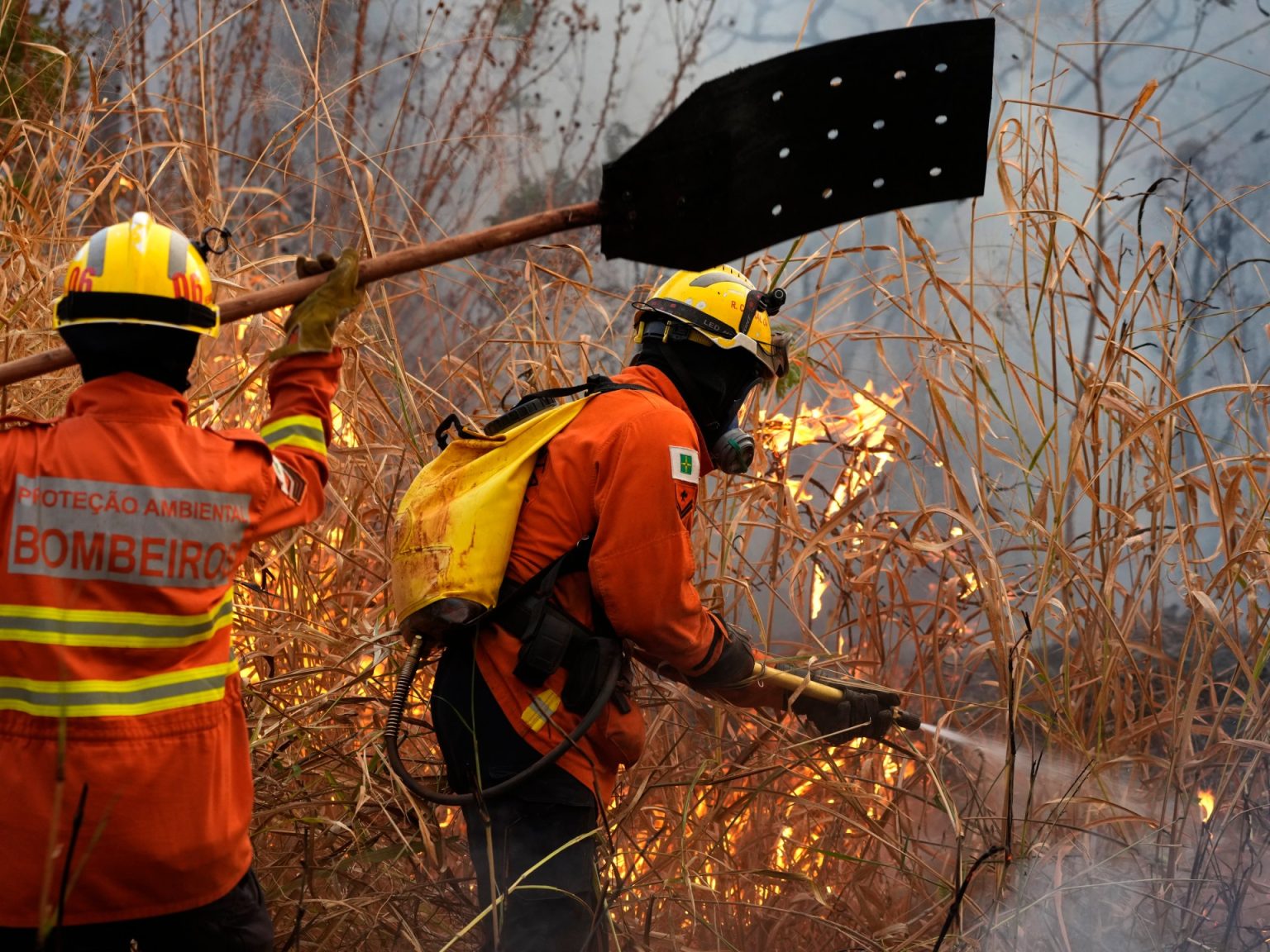In Brazil, wildfires have been raging through the Brasilia National Park, with more than 490 firefighters working to extinguish the flames that have already consumed 2,000 hectares of land. The country is facing a historic drought, with the fires spreading quickly due to high winds, low humidity, and hot temperatures. The government agency managing the park, ICMBio, has reported four main fire fronts in the eastern region of the park, with three aircrafts and a helicopter being used to combat the blaze.
The fires have caused significant damage and have also affected the capital, Brasilia, where thick smoke has blanketed the city. The fires are just one of many that have been burning across the country, including in the Amazon rainforest, the Cerrado savanna, and the Pantanal wetlands. These human-made fires have devastated protected areas and caused air quality to plummet. As a result, federal police are investigating the case in Brasilia, as the fire was started by human activity.
As the wildfires continue to spread, the government has been authorized to allocate additional funds to combat the forest fires and hire more firefighters. Brazil is currently facing its worst drought in more than 70 years, with 59% of the country experiencing its effects. The major rivers in the Amazon basin are at historic lows, further exacerbating the situation. Scientists have warned that climate change is making extreme weather events, such as wildfires, more likely, as it creates conditions that are favorable for these types of disasters.
The impact of the wildfires has been felt not only in Brasilia but across the country, with smoke engulfing vast areas and affecting air quality. The fires have been attributed to human activity, highlighting the need for stronger measures to combat deforestation and protect natural habitats. The devastation caused by the fires underscores the urgent need for action to address climate change and prevent further environmental destruction.
Efforts are being made to contain the wildfires and prevent further damage to the Brasilia National Park and other affected areas. The combination of high winds, low humidity, and hot temperatures has made it challenging for firefighters to extinguish the flames. With the support of additional resources and personnel, authorities are working to bring the fires under control and mitigate their impact on the environment and local communities.
As the wildfires continue to burn, it is crucial for the government, scientific community, and the public to come together to address the underlying causes of these disasters. Climate change, deforestation, and human activities are all contributing factors to the spread of wildfires in Brazil and around the world. By taking decisive action to reduce emissions, protect forests, and promote sustainable practices, we can help prevent future wildfires and protect the planet for future generations.


